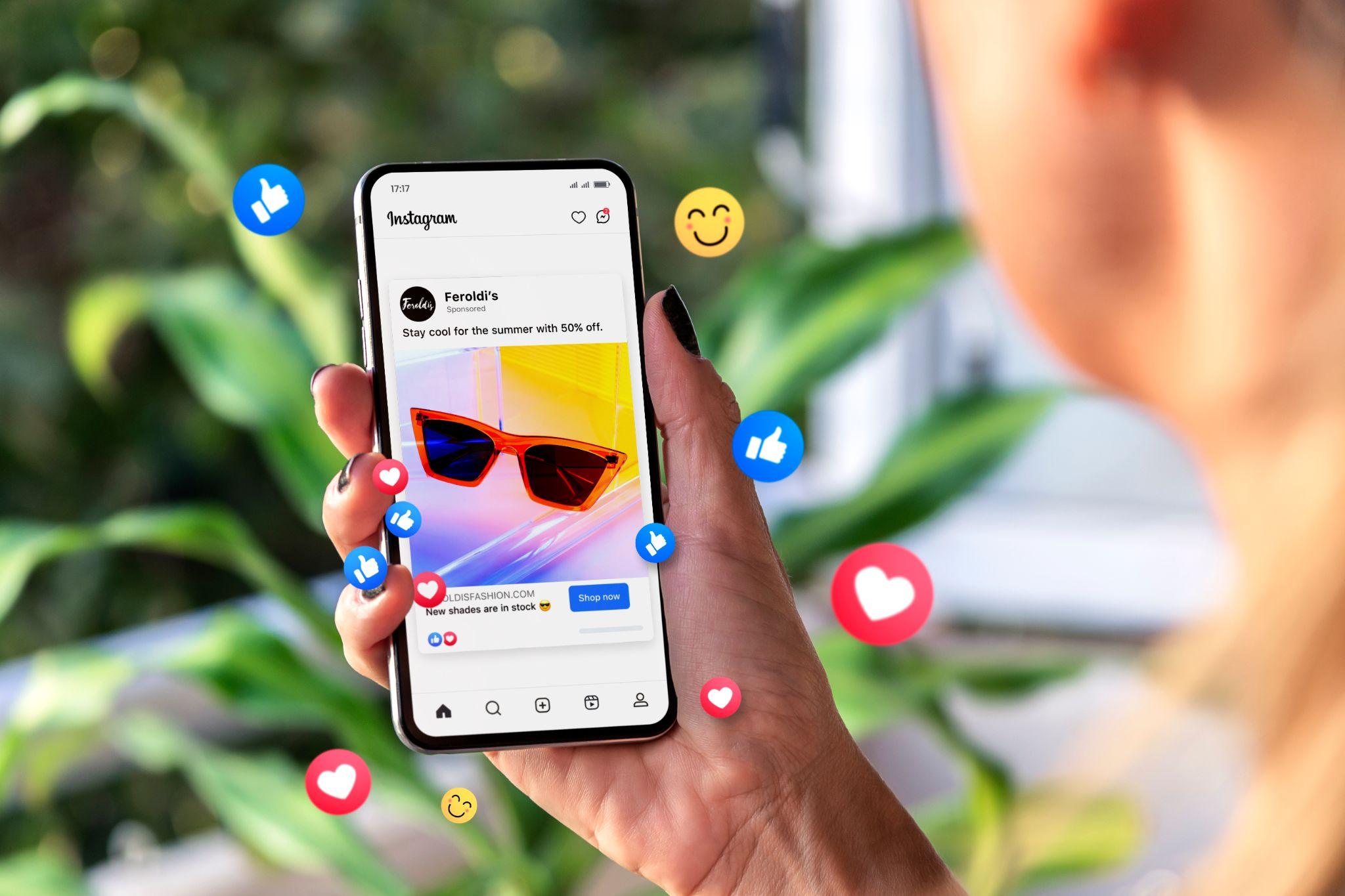
Advertising in the digital age can feel like a black box. While nurturing prospects and enticing people with discounts are tried-and-true techniques that have been around for decades, advertising online is a whole other animal.
Digital advertising can be more challenging than traditional marketing for several reasons. It’s harder to build trust and credibility online, and the digital advertising space is highly competitive. It’s also harder to measure the success of digital ads, and digital ad copy can be tricky to get right.
All of this can make it hard to stand out, and this is where an advertising agency can be a true asset. But how do you go about hiring an ad agency? What do you even look for, and how do you know you’ve picked a good one?
We’ll address those questions and more below in our complete guide on how to choose an advertising agency. And we’ll explain why hiring a digital marketing agency might make sense for your business.
Hiring an ad agency can bring big benefits, especially if you’re a growing company or have limited staff resources. Here are a few benefits of working with an agency:

There are several different types of ad agencies, from full-service companies that handle everything from ad design to media buying, to boutique agencies that handle only ad creation.
Then there are digital advertising agencies that focus on mobile and internet ads on social media platforms, Google Ads, and the like.
If you’re wondering how to hire a marketing agency or an ad agency, here are some tips on vetting an advertising agency to help you choose the best partner for your brand.
The first step in hiring a digital marketing agency is to clearly understand your needs and goals. Consider what you want to achieve with your marketing efforts. Are you looking to increase brand awareness, boost sales, or enter a new market? If you’re a boutique clothing store aiming to attract a younger demographic, for example, your primary goal might be to enhance your social media presence. Having a clear understanding of your objectives will guide your search for an agency that specializes in the areas most relevant to your needs.
Establishing a budget is essential in narrowing down your options and finding an agency that aligns with your financial resources. Determine how much you are willing to invest in your advertising efforts and consider the potential return on investment. Keep in mind that while more established agencies may charge higher fees, they may also bring more experience and resources to the table. For instance, if you’re a small business owner, you might allocate a modest budget to digital marketing channels that offer a high ROI, such as social media ads or email marketing.
Developing a comprehensive and uniform list of questions will help you evaluate prospective ad agencies effectively. Your questionnaire should cover key areas such as the agency’s experience, services offered, client testimonials, and approach to achieving your goals. For example, you might ask questions like, “Can you provide examples of successful campaigns in our industry?” or “What metrics do you use to measure success?” Having a standardized set of questions ensures you gather consistent information from each agency, making it easier to compare your options.
Once you have a clear understanding of your goals and budget, compile a list of potential agencies that offer the services you need and have experience relevant to your industry. Look for agencies that have a proven track record of success and understand your goals. If you’re a tech startup, for example, you might prioritize agencies that specialize in digital marketing and have experience working with similar businesses. Creating a shortlist of candidates will streamline the selection process and help you focus on the most promising options.
Evaluate each candidate based on factors such as cultural fit, budget compatibility, and area of expertise. Consider how well the agency’s values align with your brand and whether their niche or specialty matches your needs. For example, if your brand emphasizes sustainability, you may want to partner with an agency that shares your commitment to environmentally friendly practices. Additionally, assess the agency’s communication style and willingness to collaborate, as a strong partnership is vital for achieving your marketing objectives.
Once you’ve chosen an agency, establish a system for receiving regular updates on your ad performance. This ensures that you stay informed about the progress of your campaigns and can make data-driven decisions. Request detailed reports that include key performance indicators (KPIs) relevant to your goals, such as conversion rates, click-through rates, and engagement metrics. If your goal is to increase website traffic, for example, you’ll want to monitor metrics like page views and average session duration to assess the effectiveness of your campaigns.
It’s important to have reasonable expectations for when you might start seeing results from your advertising efforts. Discuss timelines with your agency and set realistic milestones based on your goals and industry standards. While some campaigns may yield immediate results, others may take time to gain traction. For example, if you’re launching a brand awareness campaign, it may take several months to see a significant increase in recognition and engagement. Understanding the expected timeline will help you manage your expectations and evaluate the success of your advertising strategy.
Hiring an ad agency is a bit like hiring an employee—you need to ask the right questions. Don’t rely on an agency’s online profile alone to gauge whether they’re a good fit. It’s best to ask them questions directly. Here are some to consider:
Agencies with experience in your industry are far more likely to understand the challenges your business faces. An agency who has had clients in the healthcare sector, for example, is more likely to understand the regulatory environment healthcare businesses operate in. And they’re more likely to keep patient privacy concerns top of mind. Don’t be afraid to probe about what kind of experience an agency has in your industry. Ask for case studies or examples.
Reviewing case studies or portfolio examples can give you insight into the agency’s problem-solving skills, creativity, and ability to achieve measurable results. If the agency can showcase a campaign that significantly increased brand awareness for a client, for example, you can assess whether their approach aligns with your marketing goals.
Ask how the agency reports on campaign performance and tracks key performance indicators (KPIs). An agency that focuses on metrics like conversion rates, return on ad spend (ROAS), and customer acquisition cost (CAC) demonstrates a data-driven approach that may help you achieve tangible results.

Marketing agencies often use a variety of strategies to improve the effectiveness of their client’s ad campaigns. For example, an agency might use a combination of social media marketing, search engine optimization, paid media, and influencer marketing to create a holistic strategy for your brand. Ask prospective agencies which specific strategies they use to help you succeed.
Communication is key to a successful partnership. Ask about the agency’s frequency of updates and reporting format. For example, if you prefer weekly updates and detailed monthly reports, ensure that the agency can accommodate these preferences. You’ll want to ensure you and the agency are on the same page about this to ensure the agency’s communication style and reporting practices align with your expectations.
This question helps you assess the expertise and experience of the team assigned to your campaigns. Ask about the team members’ backgrounds, roles, and responsibilities to ensure they have the skills necessary to meet your needs.
For instance, if you’re focusing on digital marketing, it’s important that the team includes specialists in areas such as SEO, social media, and PPC advertising. This question helps you determine if the agency has the right talent to execute your campaigns effectively.
Small businesses and startups can’t always afford to invest in expensive industry tools and technology. Ask which tools the agency uses to track and analyze website traffic, user behavior, and campaign performance. Also ask which tools they use for communication—such as Google Docs, Asana, and Slack. Do they use Hootsuite or X Pro/TweetDeck for social media? Mailchimp or HubSpot for email marketing campaigns? An agency that uses well-established, tried-and-tested tools—and uses them well—is more likely to generate a good ROI for your marketing dollars.
Any advertising agency worthy of your business will communicate clearly and often. Ideally, they’ll overdeliver on their promises. Here’s what you can expect from an ad agency:

We hope you’ve found this guide on how to hire a marketing agency helpful. Socialfly is ready to help you take your next ad campaign to new heights.
Our full-service marketing agency provides brands with strategic development, creative production, social media management, paid media management, and influencer marketing.
We get results for our clients with compelling content and ad copy that resonates. Get in touch to find out how our New York-based digital marketing agency can help your brand.